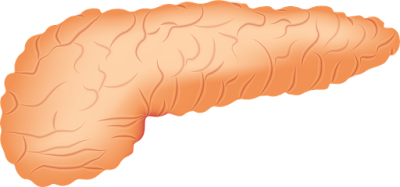Anti-cancer diet
How to fight cancer?
The main objective is to eliminate the anti-cancer diet food from glucose and other carbohydrates, which through metabolism of glucose in the body is changing.
Note! Proper blood pH is 7.35-7.45 (slightly alkaline - Alkaline).
However, eating too much product, which as a result of metabolic acidify the body. Whereby the lymphatic system rather than eliminate cancer cells that are constantly formed in the body must neutralize acidic compounds, which are supplied in foods.
Cancer cells acidify their environment, because they can grow only in acidic, alkaline and die.
People who eat mostly vegetables and fruits (eat meat very rarely) do not have a problem with maintaining a slightly alkaline pH of the body.
How to take care of the proper pH of the body?
It should eat lemons, and silage that although they have a sour taste, act alkalizing.
Zasadotwórcze action (contain a lot of calcium, magnesium and potassium) are also fruits and vegetables, sesame seeds, pumpkin seeds, sunflower seeds, almonds, potatoes in their skins, as well as millet and buckwheat (other grits are acidic).
Very important in the diet have anti-cancer vegetables that come from the family Brassicaceae (crucifers, which are so named because of the characteristic cross arrangement of petals of flowers).
These are:
- broccoli , cabbage, cauliflower and Brussels sprouts.
Broccoli contains sulforaphane - flavonoid, which can attack cancer cells in many ways. It stimulates the processes that fight free radicals and stimulates the hepatic production of enzymes that detoxify cancer compounds.
Sulforaphane also prevents the spread of cancer cells, and therefore metastasis. According to research, selectively destroys cancer cells of prostate cancer, leaving other cells intact. Eating vegetables that contain this flavonoid reduces the risk of lung cancer, stomach, rectum and colon.
The best source of sulforaphane is broccoli that contain it to 60 mg per serving, and broccoli sprouts have it even 100 times more. It is very important that this relationship is lost during cooking.
The component is also cruciferous plants indole- 3 -carbinol (I3C). It works in different directions anticancer, and especially in cancer pedestrians. This compound inhibits growth and proliferation of cancer cells, supports their death, and to assist the repair of DNA. It also affects the immune system strengthening (resistance).
It should also reach for the fruits of wild rose, red grapefruit, watermelon and tomatoes, which contain lycopene. It is one of the most potent anti-cancer compounds. It prevents pancreatic cancer, breast, lung, cervix, gastrointestinal tract and the prostate.
Note! According to research conducted by experts from Harvard Medical School, tomato food more than twice a week reduces the risk of developing prostate cancer by up to 30 %.
In 80 % of men with prostate cancer detected after 3 weeks of treatment lycopene (received 15 mg of lycopene per day) gland clearly decreased. Thus, a man who is suffering from prostate cancer should provide your body with this relationship.
Note! More valuable is lycopene not with fresh vegetables , but with their products (tomato sauces, ketchup, tomato paste). However ketchup in anti-cancer diet is the product of an unlawful because it contains sugar, but it is the will can eat for a tomato paste with a little fat, because only then it will be absorbed by the body.
The products recommended in the diet-cancer
Fruits: lemon.
Vegetables: avocado, eggplant, broccoli, Brussels sprouts, onions, garlic, green beans, cauliflower, kohlrabi, cabbage (all types), sprouts (except soybeans), pickled vegetables, cucumber, olives, peppers, tomato, leek, turnip, radish, lettuce (all types), celery, asparagus, spinach, all the mushrooms.
Meat, poultry and fish: all types (including sausages).
Dairy products: sour cream, buttermilk, cottage cheese, white cheese, yellow and mold.
Fats: butter, oil, lard.
Other preparations to sweeten with stevia, eggs, black coffee, coffee with chicory, black tea, lemon juice, mineral water, hot mustard, vinegar, seeds, ground flax seeds, poppy seeds and tofu.
Products allowed in small amounts in the diet-cancer
Fruits: gooseberry, pineapple, watermelon, blueberries, wild rose, grapefruit, pear, apple, blackberry, kiwi, raspberries, melon honey, currants, plums, strawberries and cherries.
Vegetables: beets cooked, pumpkin, carrots raw, pickled cucumber, cooked lentils and potatoes.
Dairy products: yogurt, kefir, milk.
Other: fructose, maple syrup, chocolate (cocoa content above 70%), buckwheat, rye flour (especially flour), spelled flour, almonds, hazelnuts, walnuts and peanuts, pumpkin seeds, sunflower seeds, peanut butter, wine and beer dry and soft drinks.
Products to be avoided in the diet-cancer
Fruits: bananas, dates, figs, dried fruit, raisins, grapes.
Vegetables: chickpeas, beans, peas, corn.
Processed Cereal: all breads, muesli, corn flakes, pasta, rice, wheat flour, couscous, barley.
Dairy products: yoghurt and buttermilk, fruit, cheese melted.
Other: chips, crackers, sugar, jams, preserves, honey, coca-cola, sodas, fruit juices undiluted, alcohol (especially beer, sweet wines, spirits, liqueurs), sweet mustard and all kinds of sweets.
Selenium in the diet-cancer
One of the important microelements, which prevents cancer is selenium. It was found that most likely this element supplementation can range from a few to several tens of times lower risk of breast cancer, ovarian, prostate, lung and larynx.
In the case of women who have mutations in the gene BRC1 it amounts to 60-80%. According to studies, the optimal level of selenium in the blood causes the probability of getting reduced by up to 10%.


Comments
Post a Comment